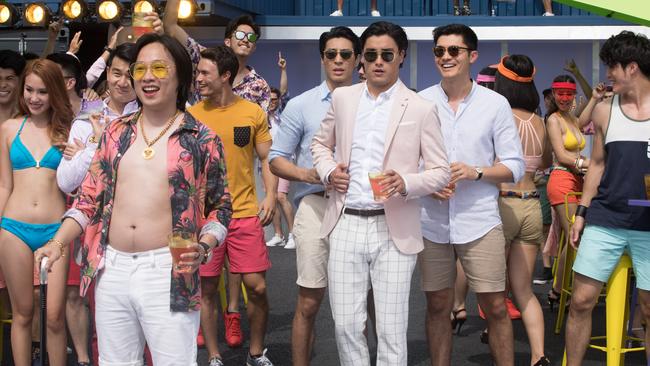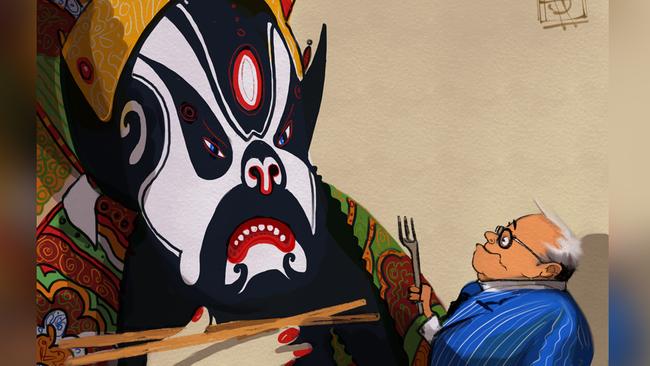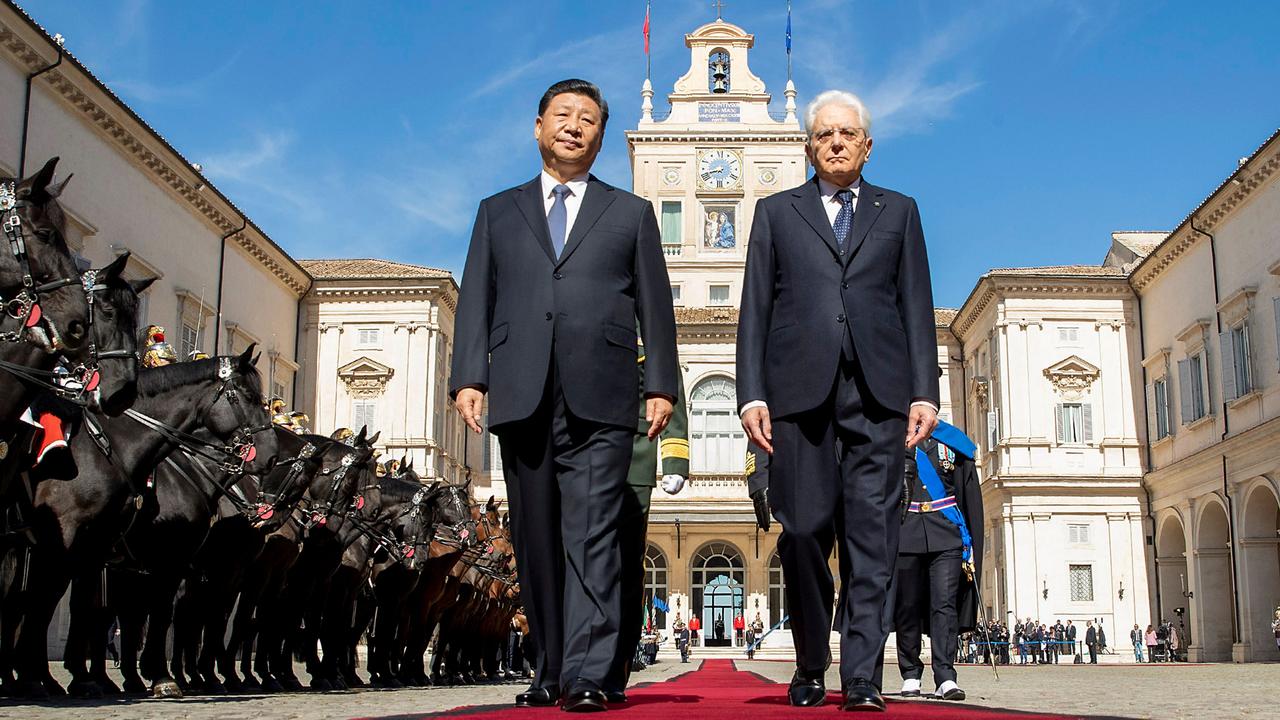Nothing crazy about rich Asians making Australia home
The movie Crazy Rich Asians doesn’t stand out because the folk who populate it are crazy or rich, but because they’re all Asians.

The movie sensation of the year, romcom Crazy Rich Asians, does not stand out because the folk who so vividly populate it are crazy or rich.
It’s rivetingly special because they’re Asians, within the broad meaning of that construct — all the main characters are ethnically Chinese.
What makes the film, based on Kevin Kwan’s big-selling novel, unique for such a massive mainstream hit in America, is that there is not even a token European character. Its world is cosmopolitan, but Chinese cosmopolitan.
Despite its glamorous frothiness — nothing art-house here — its success with broad audiences might in time elevate it to the status of a cultural watershed.
It is a culturally self-confident world — boy, is it self-confident.
It starts with a brief vignette, set in 1995, of British racism, which is dealt with witheringly simply by buying the culprits out and consigning them to irrelevance.
The film is set in Singapore, in Success City. The uber-wealthy family around which it revolves reveals over its course typical facets of the Chinese Asian high life: sincere respect for the elderly in the form of grandmother, a preparedness to shift to different places to improve the family’s fortunes — with relatives in Shanghai, Taiwan, Hong Kong — piety, in the form of a Bible study among the aunties, and of course a struggle over succession.
Besides the central romance, the other main theme around which it is entwined is family pride, the imperative of the sons — or in extremis the daughters — taking over the business, and the clash of those generations.
Anyone who has lived in east Asia in recent times is familiar with the film’s assertive sub-text: that in terms of modern infrastructure, educational levels, the general zeitgeist, this part of the world is accelerating well past Europe and America.
In 1936, New York reporter Lincoln Steffens travelled to the Soviet Union and said: “I’ve seen the future, and it works.” He was of course proven wrong. But the case of east Asia is considerably more compelling, in part because it traverses national borders.
The film rubs in this point about stepping past even the US, when a father shames his children at the dinner table about not finishing their food: “There’s a lot of children starving in America…”

Our heroine, who was raised in America, says on landing at Singapore’s Changi: “I can’t believe this airport has a beautiful butterfly garden and a movie theatre… JFK is just salmonella and despair.”
Or compare the metro systems of Seoul, Shanghai, Hong Kong, Taipei, Tokyo, with that of Sydney.
The soundtrack references not just Western songs that are Asianised, but charming perennially popular swing-era songs, in Mandarin, from Shanghai’s roaring 20s and 30s.
The featured family may be crazy, but it’s not nouveau riche. It’s old money, Asia-style — “they had money when they left China in the 1800s”. They may enjoy flaunting it, but they also enjoy the novelty of appearing “ordinary”. They sit round a table making dumplings together, in a family tradition.
It was especially intriguing to view this film following a couple of days spent with wealthy people from the People’s Republic, at the second Sino-Australian Entrepreneurs’ Summit.
Their ambition, vision, persistence, hard work, and nerves for risk-taking are not inferior to those of their crazy rich comrades elsewhere in Asia. But they have to behave very differently if they are to consolidate their fortunes and hang on to them long enough for succession to become an issue.
Deng Xiaoping relished the company of tycoons, especially from Hong Kong, and under the reform-and-opening era that he launched 40 years ago this December, the emergence of home-grown millionaires then billionaires was encouraged.
But in more recent years, with China’s rapid growth expanding inequality, the Communist Party has sought to rein in the flaunting of wealth while encouraging businesspeople to become party members.
The anti-corruption campaign that is the hallmark of Xi Jinping’s New Era underlined the dangers of display. Entrepreneurs who had been eager to be interviewed for the Shanghai-based Hurun Report that provides China’s most authoritative rich lists sought to downgrade their wealth, as appearing in the top 10 became a predictor that they might face prosecution and lose that fortune.
Entrepreneurs understandably start to consider where they or members of their family might best live. Often the answer is to spread the risk by shifting some overseas.
It’s especially difficult in the current climate for the most famous of China’s entrepreneurs to travel, for they are now bound to be recognised. Those visiting Australia this week are more low key — well-known in their home towns and provinces but maybe not more broadly.
Hong Kong is one answer. People who own property there can enjoy their wealth, including socialising in comfortable private clubs, without any concerns about censorship.
Inevitably, policy directions come in waves in China, and new tides will come in time. But for now, it’s the private sector that is being screwed down especially tight to reduce leverage, rather than the state corporations that are the dominant culprits.
And regulatory changes are also hitting private business disproportionately, with the new rules on foreign investment introduced a year ago leading to a 27 per cent reduction in direct investment last year.
As a result, and in contrast with their counterparts elsewhere in crazy rich Asia who tend to stick tenaciously to their original sources of wealth while inevitably also dallying in real estate development, entrepreneurs in China are busy diversifying.
If one stream of activity suddenly falls out of policy favour with the government, another needs to available — “otherwise you lose everything”, as one businessman told me this week.
It’s to Australia’s benefit, that both streams — the necessarily canny rich from China and the rich from the rest of east Asia — feel comfortable about living here, bringing capital, families, and appetites that create jobs.
It’s no coincidence that natural Australian starting points for such investors include luxury property, vineyards, beef farms, thoroughbreds, and education.
Nothing crazy about that.




To join the conversation, please log in. Don't have an account? Register
Join the conversation, you are commenting as Logout